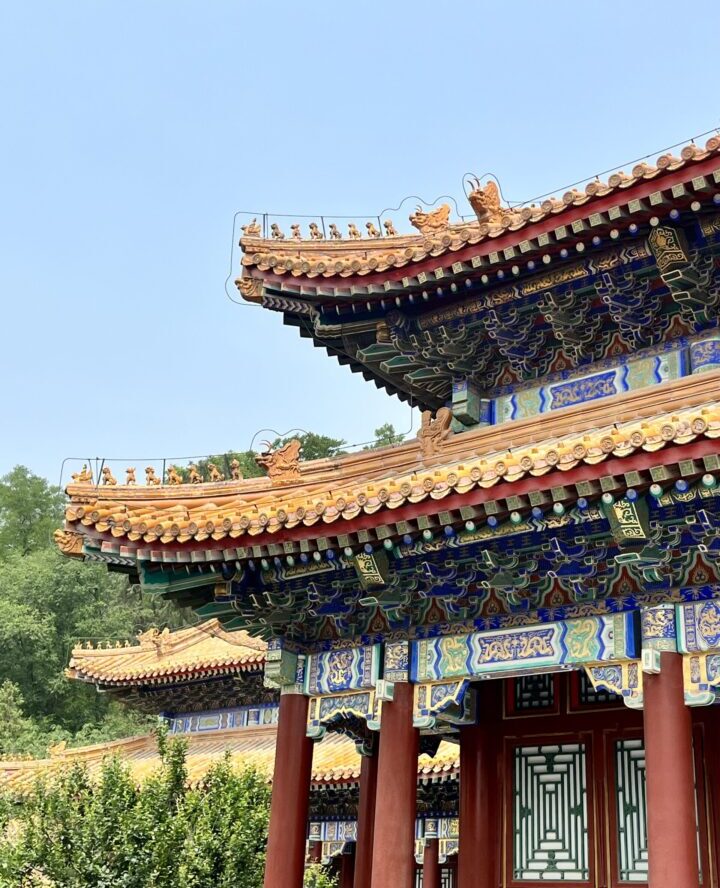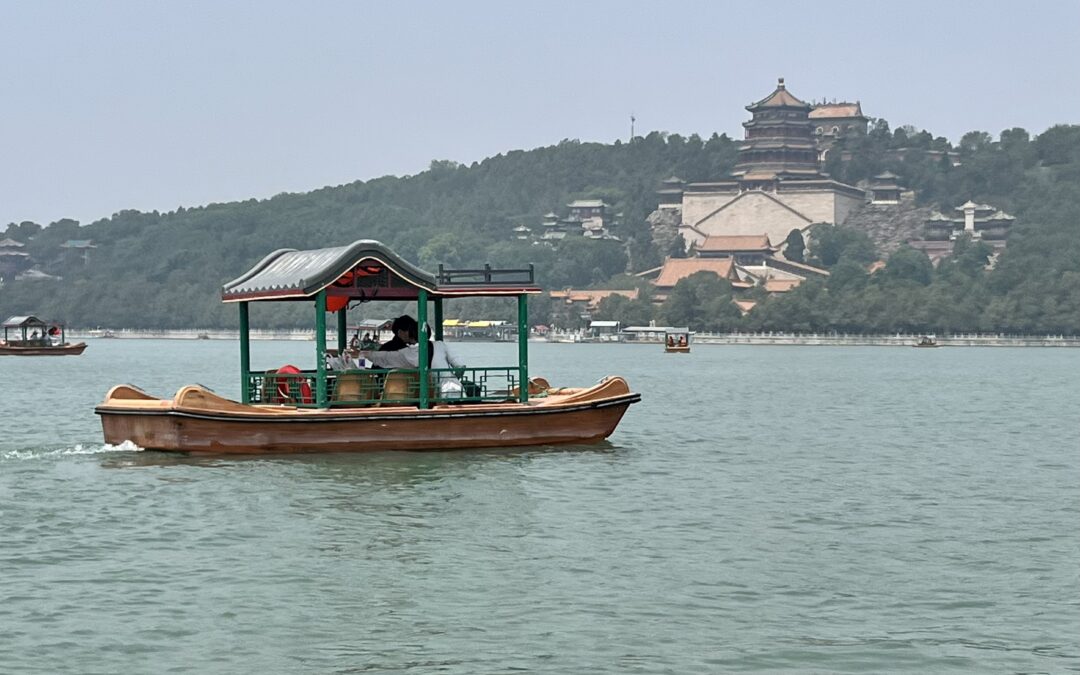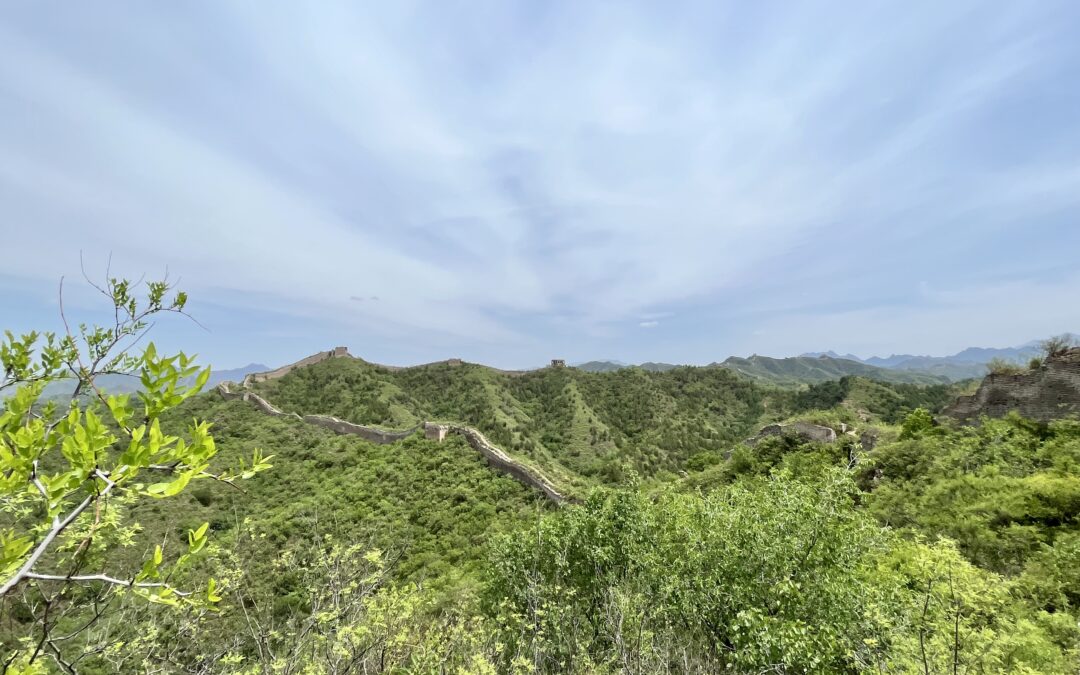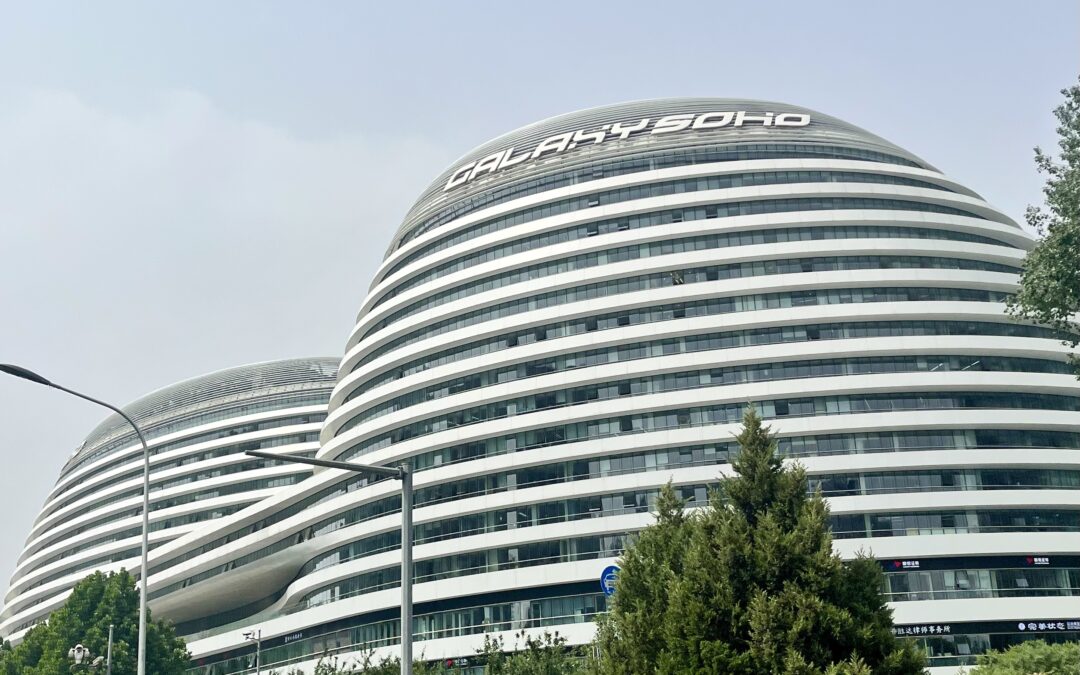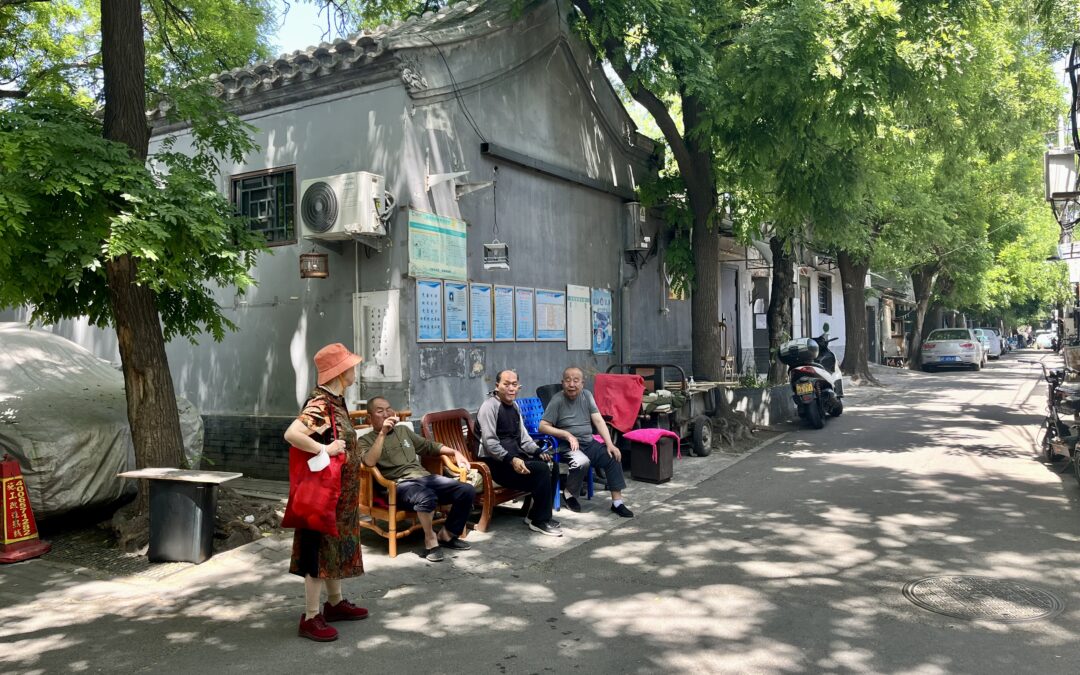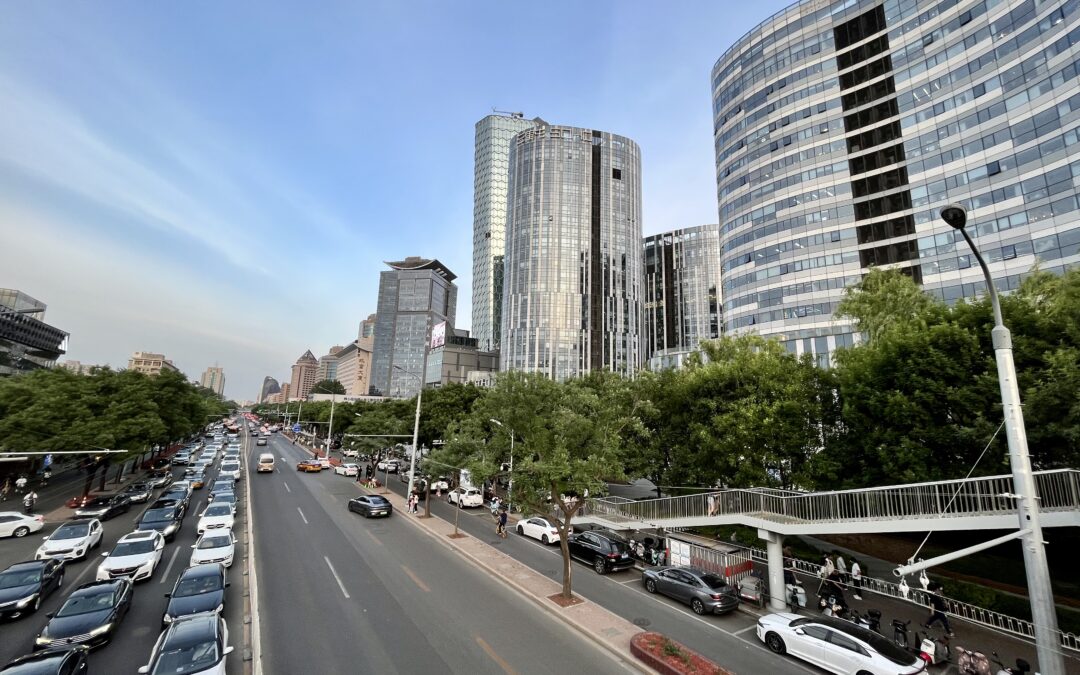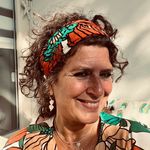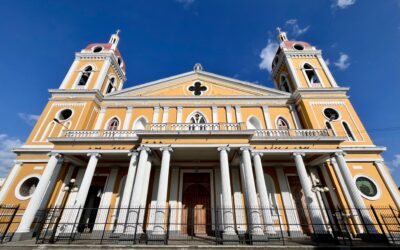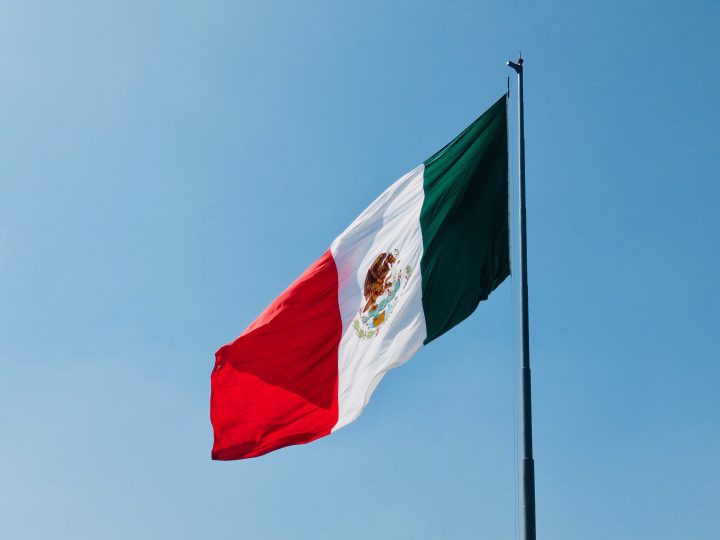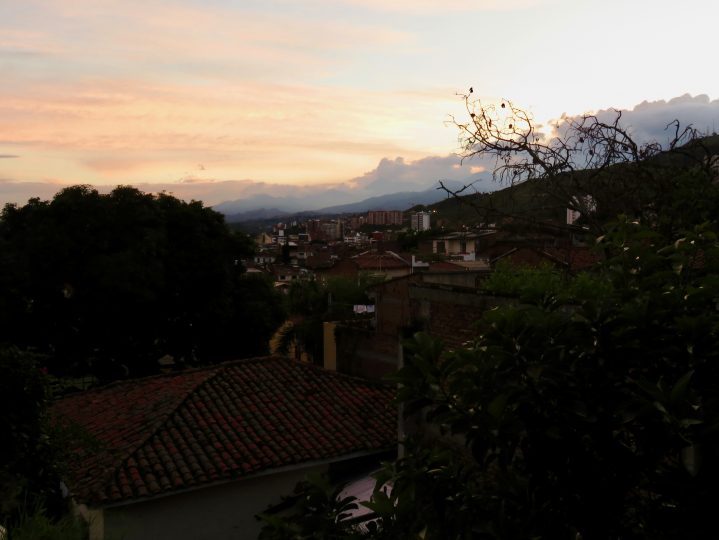The history of Beijing goes back 3000 years, when Beijing was the capital of the Mongols. Over time, there have been historical architectural buildings built by the Ming and Qing monarchs who ruled over China. Many of these imperial buildings are located in Beijing and in the surroundings. There are six UNESCO World Heritage Sites in Beijing! There are so many temples and historical buildings in Beijing that it is impossible to see them all. But here the main and not to miss temples and places of the old imperial Beijing. In the next blog I will highlight some of the more recent buildings. The palaces and temples could get very crowded, I understood that that Chinese locals receive points in their license when visiting these temples, like a place of pilgrimage.
The Forbidden City
The astonishing Forbidden City, or ancient palace, is the largest palace complex in the world. Over more than 500 years, 24 Chinese emperors lived in the heart (Ring 1) of the Beijing.
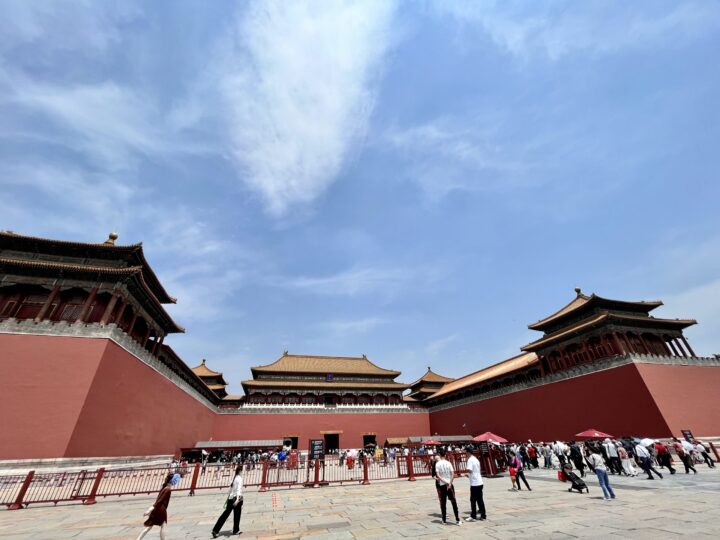
Get your tickets a long time before your actual visit, we were too late!
But I didn’t mind, the complex itself and the surroundings are stunning by itself. We walked in the Zhongshan Park and strolled around there to the different buildings and green areas. When we arrived at the Meridian Gate my mouth opened literally, what an immense building and how pretty with all the details on the rooftops. Music is played and a military performance takes place, I was in another world!
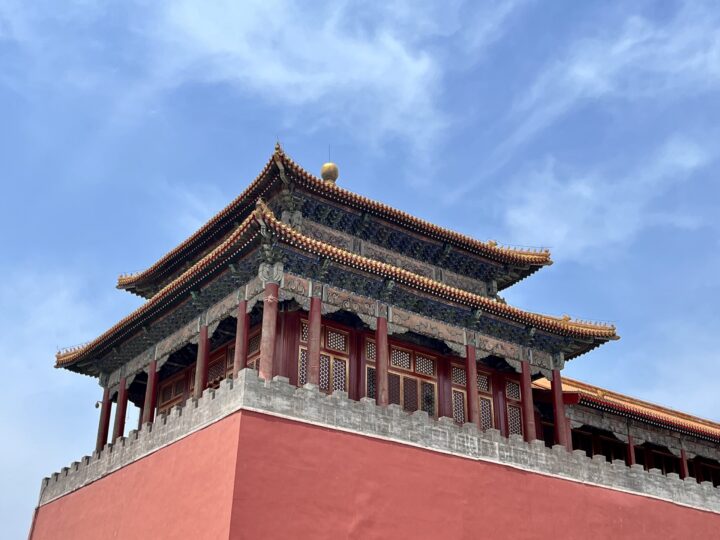
To see the best view of the Forbidden City and see the size of the city surrounded by the Tongzi River; is to walk up the hill in the Jingshan Park.
Walk around the left or right from the main Meridian gate all the way to the other end of the North Gate. Cross the busy street and buy a ticket to the Jingshan Park. Walk all the way up to the highest point, also a Temple and from here you have the perfect view over the Forbidden City. This is a tip from all the expat locals living here. They say it is even better than visiting the city itself.
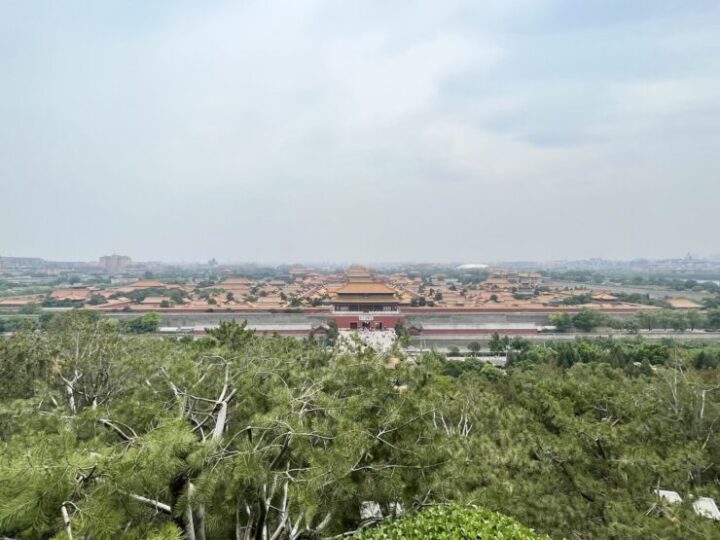
Bring water with you, it is a climb to the top and it could get hot and sunny, although you see the smog on the photos.
Tiananmen Square
I was in Beijing when it just opened the borders to tourists. The county was still hesitant and resisted against foreigners, and we could feel and see it everywhere. We were not allowed to enter the Tiananmen Square, which is the largest public square in the world. It is indeed huge, but you are not even allowed to stop the car to take a picture. It is well protected and secured after the pro-democracy protest in 1989, where thousands mainly students died.
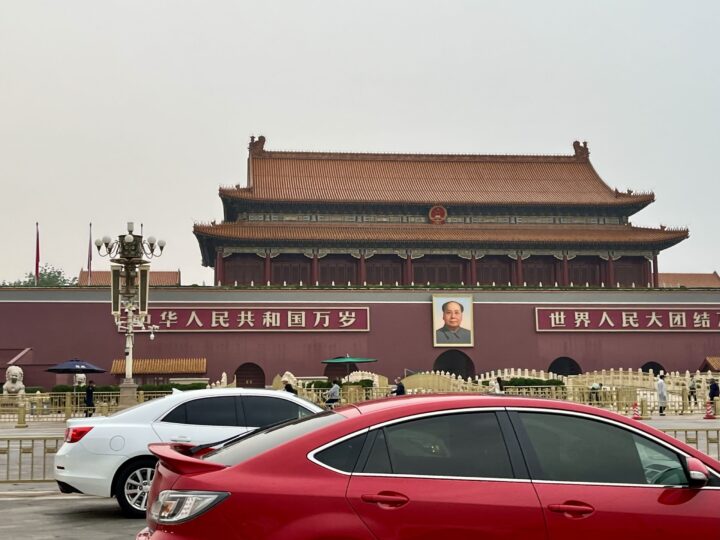
Tiananmen was built during the Ming dynasty in 1420 and was the entrance to the Imperial City, within which the Forbidden City was located. The Tiananmen is translated The Gate of Heaven and has a portrait of Moa Zedong, the Chinese politician who was the founder of the People’s Republic of China (PRC), hanging above the gate.
Temple of Heaven Park
The Temple of Heaven one of the World Heritage sites. It’s called “a masterpiece of architecture and landscape design which simply and graphically illustrates a cosmogony of great importance for the evolution of one of the world’s great civilizations”
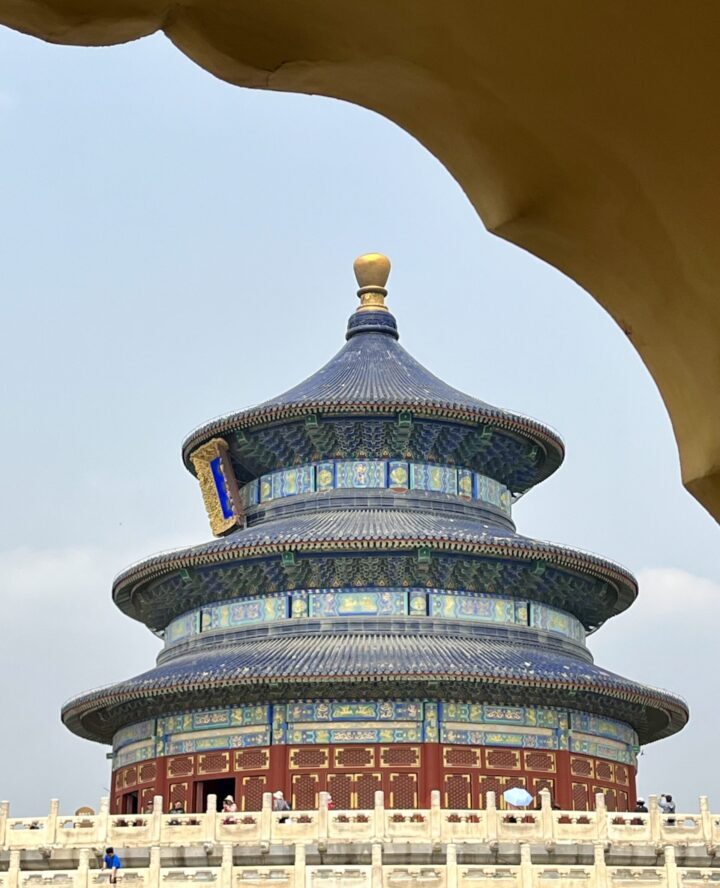
The temple was constructed from 1406 to 1420 in the Ming Dynasty, same as the Forbidden City. It was renovated in the 18th century by the Qing Dynasty, both held the Heaven Worship Ceremony. The park with the Temple of Heaven was opened in 1988 for the public, to show religion, ancient philosophy and history. The well-maintained park is huge around the temple with many beautiful trees and public places. The park is split into two parts representing heaven and earth.
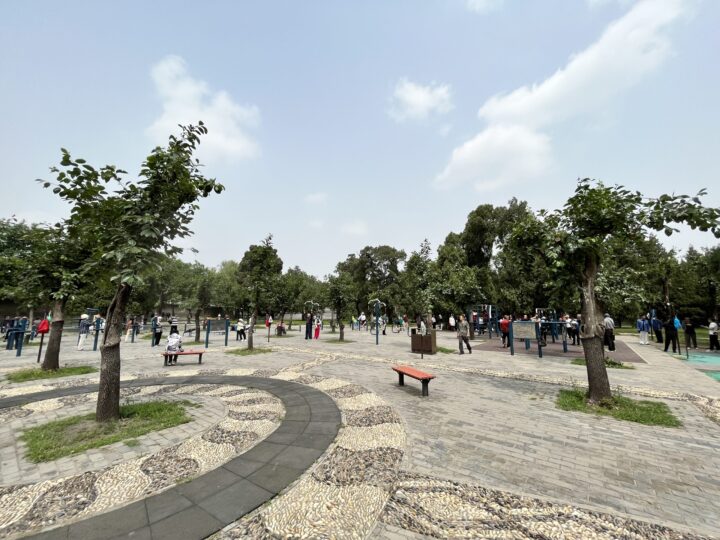
Take a look at the park with the older Chinese people working out in the outdoor gym! They are so flex!
The Summer Palace
Outside Beijing (15 km), you will find the former imperial garden of the Qing dynasty, the Summer Palace. It is a very stretched area with lakes, hills, artwork and amazing temples. The Longevity Hill is 60 meters high and has many buildings from the bottom of the lake to the top of the hill. You can walk up this hill and visit all the creations all the way to the top. Since 1998 the Summer Palace is a UNESCO World Heritage Site:
“A masterpiece of Chinese landscape garden design. The natural landscape of hills and open water is combined with artificial features such as pavilions, halls, palaces, temples and bridges to form a harmonious ensemble of outstanding aesthetic value”
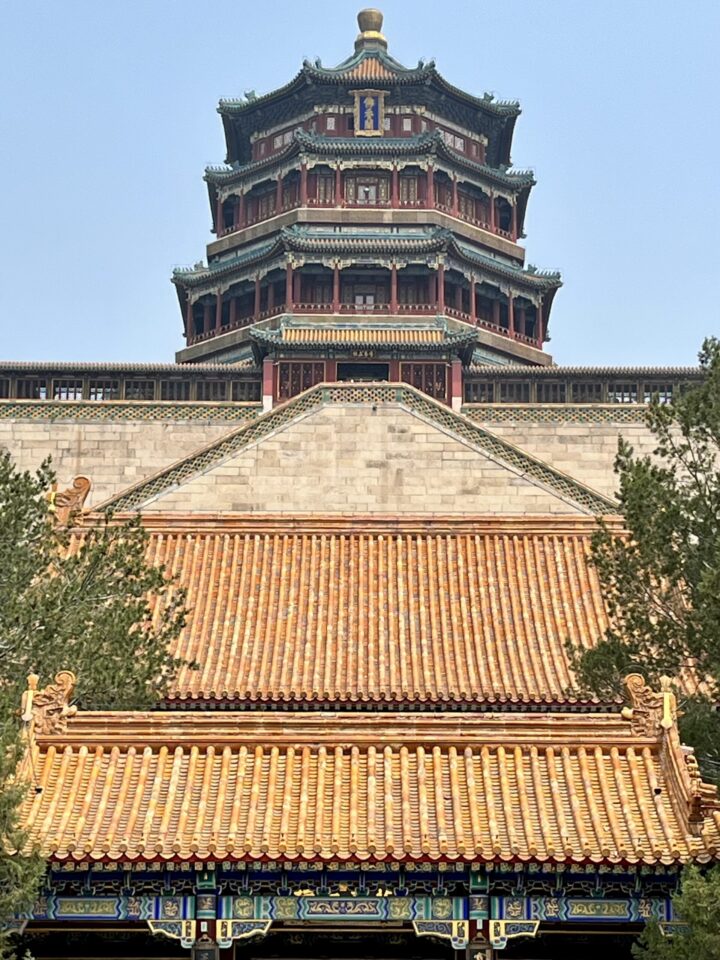
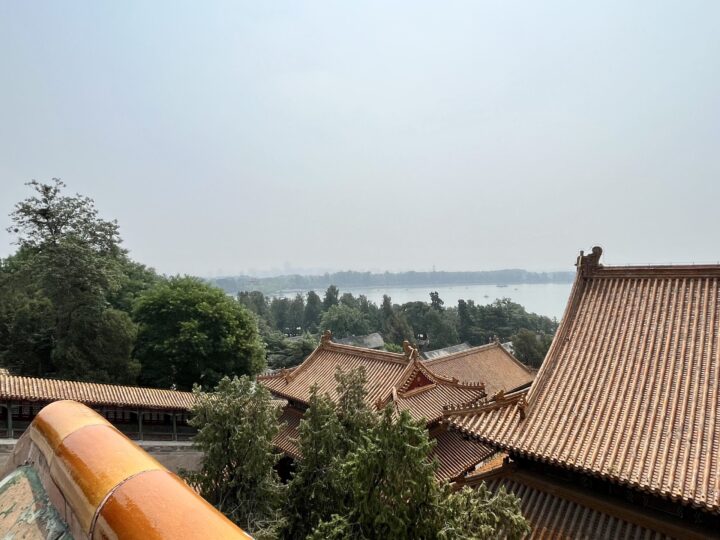
Show your entrance ticket at the North entrance at Qinglongqiao E Street. First you walk across the Suzhou Creek to the nice Suzhou Street. Climb up and amaze by the dozens of imperial buildings. All is symmetrical and so colorful, loved it! The trails are clear and good to walk. We followed the path down to the historic and decorated palace walkway at Lake Kunming.
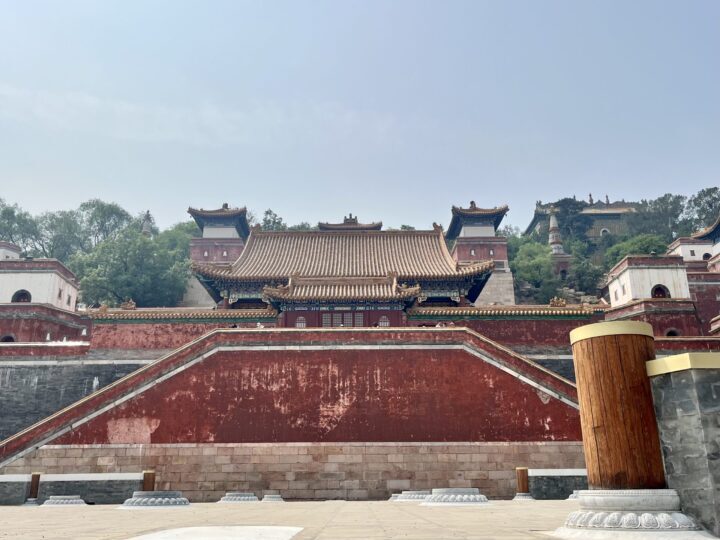
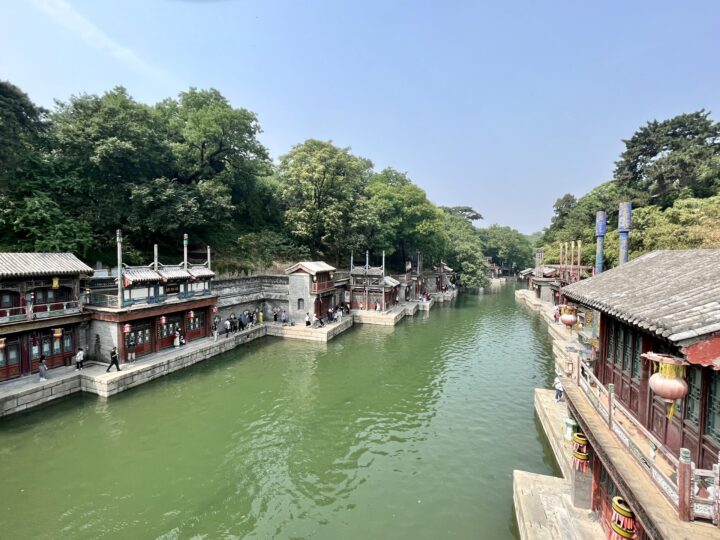
Lama Temple
The Lama Temple, also named Yonghe Lamasery, is the largest Buddhist Temple in Beijing. It was built in 1694 where you will find five buildings with in on one the largest wooden Buddha in the world. The smell of this place is intense, the burning of the incense burners to worship the Buddha are the reason for that. The line for this temple could get really long, so be prepared.
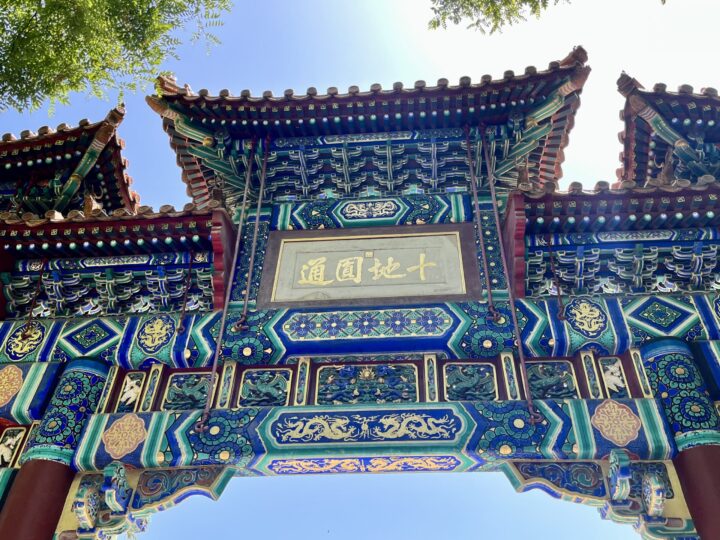
Across the street of the Lama Temple you will find the Confucius Temple. During our Hutong Tour we passed this complex of temples and also walked through the Guozijian Street, which is a really nice street with little shops and small restaurants. The focus was on the tea in this street; I really liked the vibe here next to the temple and under the green trees.
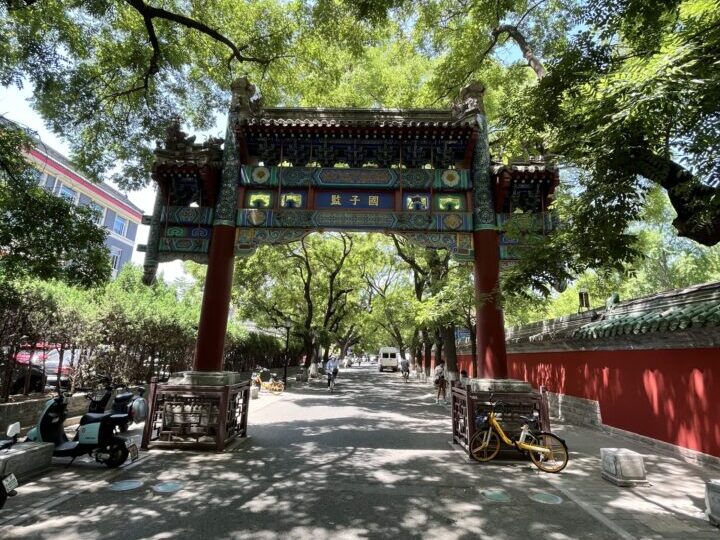
I loved all the traditional buildings in and around Beijing. The time really stands still when you walk through the temples and palaces. The culture is so alive here! But I can appreciate the newer buildings as well!
Please check my blog on the New Buildings of Beijing here!

